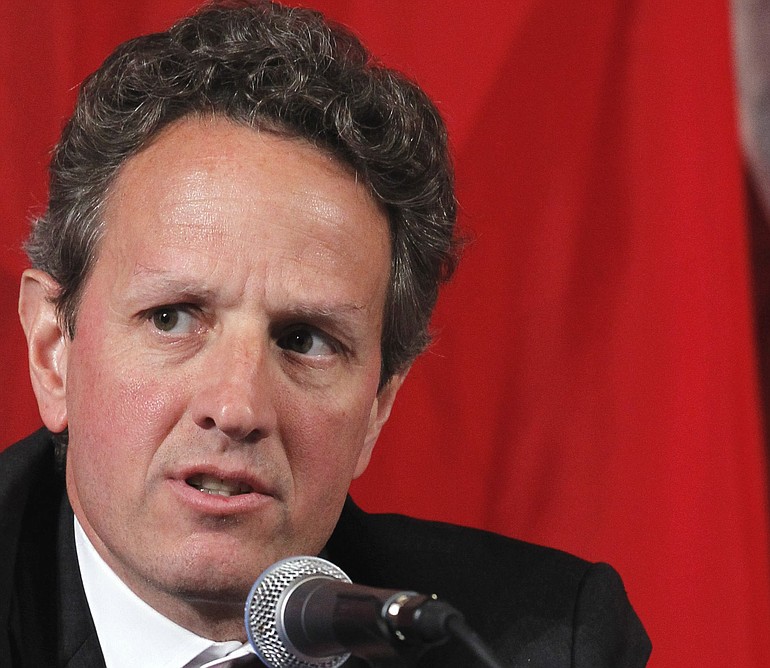WASHINGTON — The government has maxed out its credit card.
The United States reached its $14.3 trillion limit on federal borrowing Monday, leaving Congress 11 weeks to raise the threshold or risk a financial panic or another recession.
Treasury Secretary Timothy Geithner formally notified Congress that the government would halt its investments in two federal pension plans so it won’t exceed the borrowing limit.
Geithner said the government could get by with bookkeeping maneuvers like that through Aug. 2. After that, the government could default on its debt for the first time, threatening the national credit rating and the dollar.
Geithner sent Congress a letter saying he would be unable to make the pension investments in full. He urged Congress to raise the debt limit “in order to protect the full faith and credit of the United States and avoid catastrophic economic consequences for citizens.”
Republican leaders in the House have said they won’t raise the debt limit unless the Obama administration first agrees to big spending cuts or to steps to lower the debt over the long run.
House Speaker John Boehner repeated the pledge in a statement Monday. The statement did not address Geithner’s warning about what would happen if the limit were not raised.
“Americans understand we simply can’t keep spending money we don’t have,” Boehner said. “There will be no debt limit increase without serious budget reforms and significant spending cuts.”
Drastic options
Republicans have also ruled out any tax increases, including any plans to end tax cuts for high earners enacted in 2001 and 2003.
“We need to have a vote to lift the debt ceiling because the consequences of not doing so would be quite serious,” White House spokesman Jay Carney told reporters. “And those who suggest otherwise are whistling past the graveyard.”
If it doesn’t raise the limit, Congress would have to come up with $738 billion to make up for what it planned to borrow through the end of the fiscal year on Sept. 30. The options are drastic: Cut 40 percent of the budget through September, which might mean defaulting on payments to investors in government bonds; raise taxes immediately; or some combination of the two.
“In the economic area, this is the equivalent of nuclear war,” says Edward Knight, who was the Treasury Department’s general counsel during a standoff over the debt ceiling in the mid-1990s.



